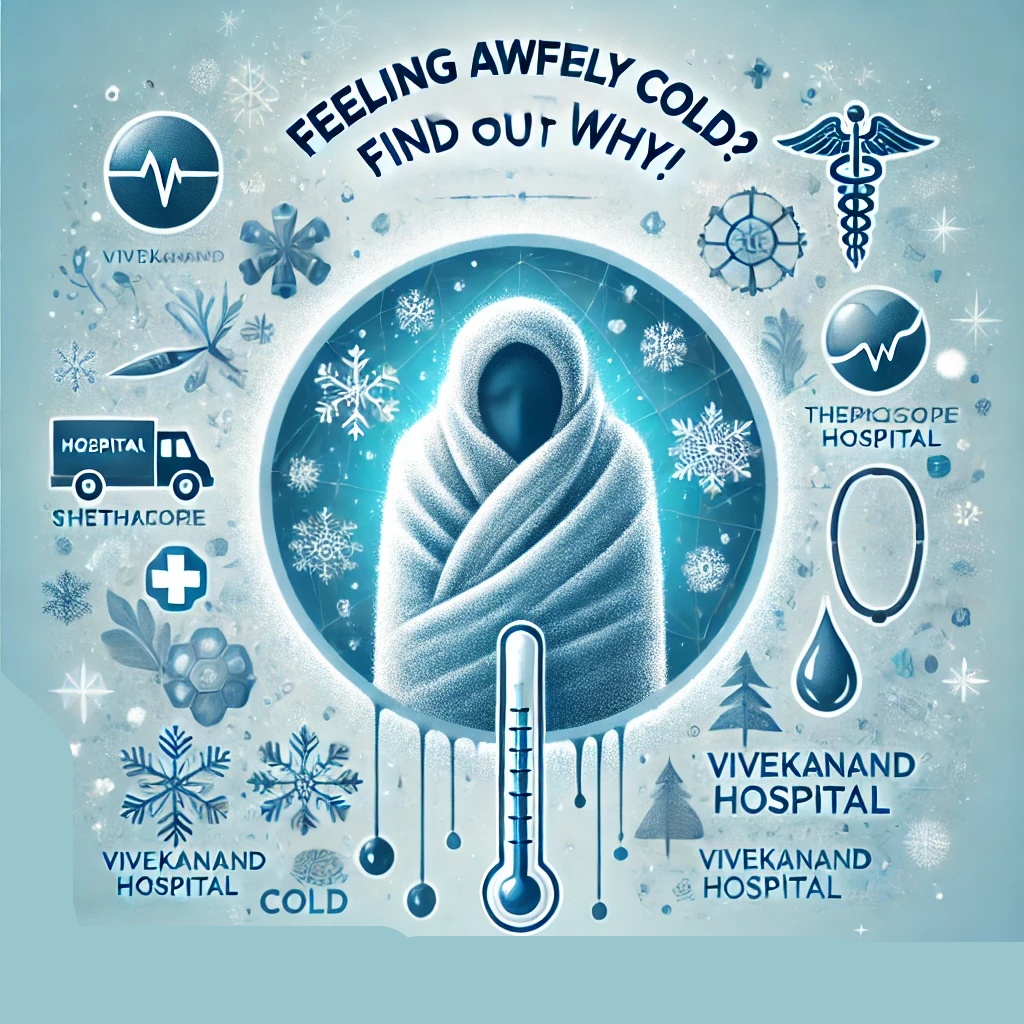Introduction:
Feeling cold occasionally during chilly weather is normal, but if you constantly shivering or feel colder than others in the same environment, it could indicate an underlying issue. Persistent cold sensitivity can be more than a seasonal inconvenience—it might be a symptom of a deeper health concern. In this article, we explore five reasons you might be feeling cold and offer guidance on when to seek medical attention from Vivekanand Hospital, Bhubaneswar.
1. Iron Deficiency:
Iron is critical in producing haemoglobin, the protein in red blood cells that helps carry oxygen throughout your body. When you have an iron deficiency, your body struggles to maintain proper oxygen delivery, which can lead to feelings of coldness, especially in your hands and feet.
Symptoms of Iron Deficiency:
– Fatigue
– Pale skin
– Shortness of breath
What You Can Do:
Increase your intake of iron-rich foods like spinach, lentils, and lean meat. If symptoms persist, consult a healthcare professional for diagnosis and treatment.
Read More: Fissure, Piles, and Fistula Symptoms and Treatments-Vivekanand Hospital Bhubaneswar
2. Thyroid Problems:
Your thyroid gland regulates your metabolism, and an underactive thyroid (hypothyroidism) can slow down your body’s processes. This often leads to increased sensitivity to cold temperatures.
Symptoms of Hypothyroidism:
– Weight gain
– Dry skin
– Fatigue
What You Can Do:
Get a thyroid function test to determine if this is the cause. Early detection and proper medication can help manage the condition effectively.
3. Poor Blood Circulation:
If your blood circulation is inadequate, certain parts of your body may not receive enough warmth. Conditions like peripheral artery disease (PAD) or even prolonged sitting can reduce blood flow, making you feel cold.
Symptoms of Poor Circulation:
– Numbness or tingling in extremities
– Swollen hands or feet
– Slow-healing wounds
What You Can Do:
Exercise regularly to promote better blood flow. If you suspect a serious circulation issue, seek medical advice immediately.
4. Vitamin B12 Deficiency:
Vitamin B12 is essential for nerve health and red blood cell production. A deficiency in this vitamin can lead to anaemia and nerve issues, both of which might make you feel colder than usual.
Symptoms of Vitamin B12 Deficiency:
– Weakness
– Tingling sensations
– Difficulty concentrating
What You Can Do:
Consume more B12-rich foods like dairy, eggs, and fortified cereals. For severe deficiencies, injections or supplements may be necessary.
5. Dehydration:
Water helps regulate body temperature. If you’re dehydrated, your body loses its ability to stay warm, making you feel cold.
Symptoms of Dehydration:
– Dry mouth
– Dizziness
– Dark urine
What You Can Do:
Drink adequate water throughout the day, especially during the winter months when dehydration is often overlooked.
Conclusion:
Feeling excessively cold can be more than just a personal quirk—it could signal an underlying health problem. If you’ve been experiencing this symptom persistently, it’s time to consult with medical experts. Vivekanand Hospital, Bhubaneswar, offers comprehensive diagnostic and treatment services to address these concerns and ensure your overall well-being.
Stay warm, stay healthy!

